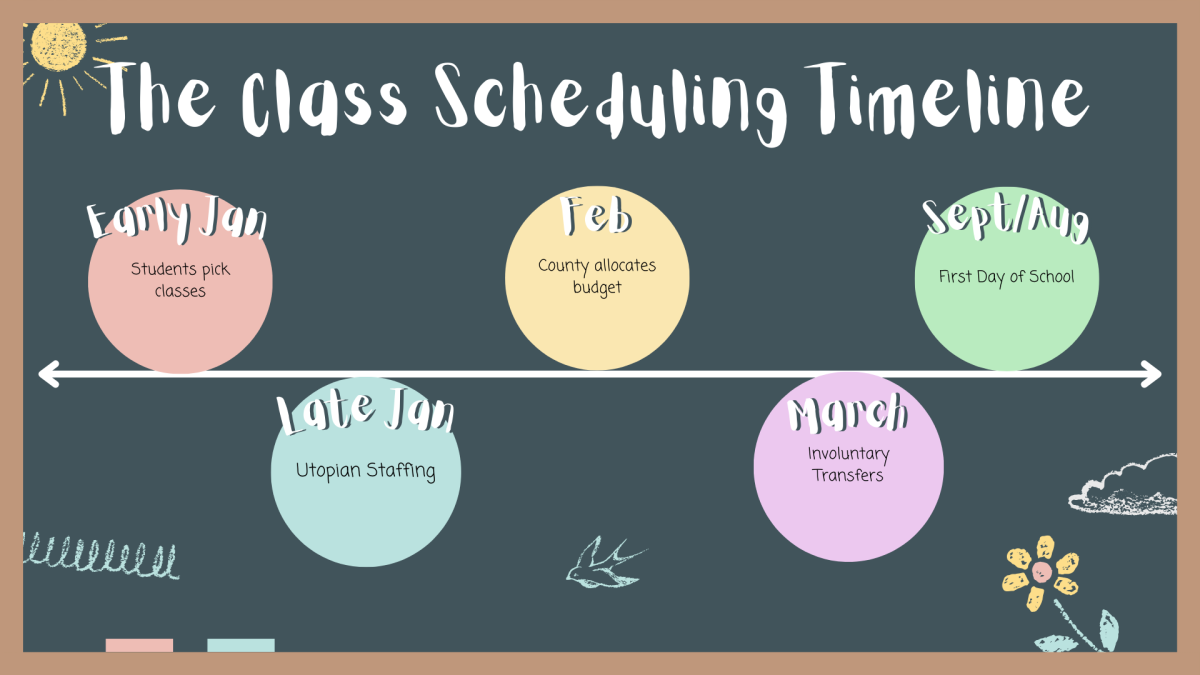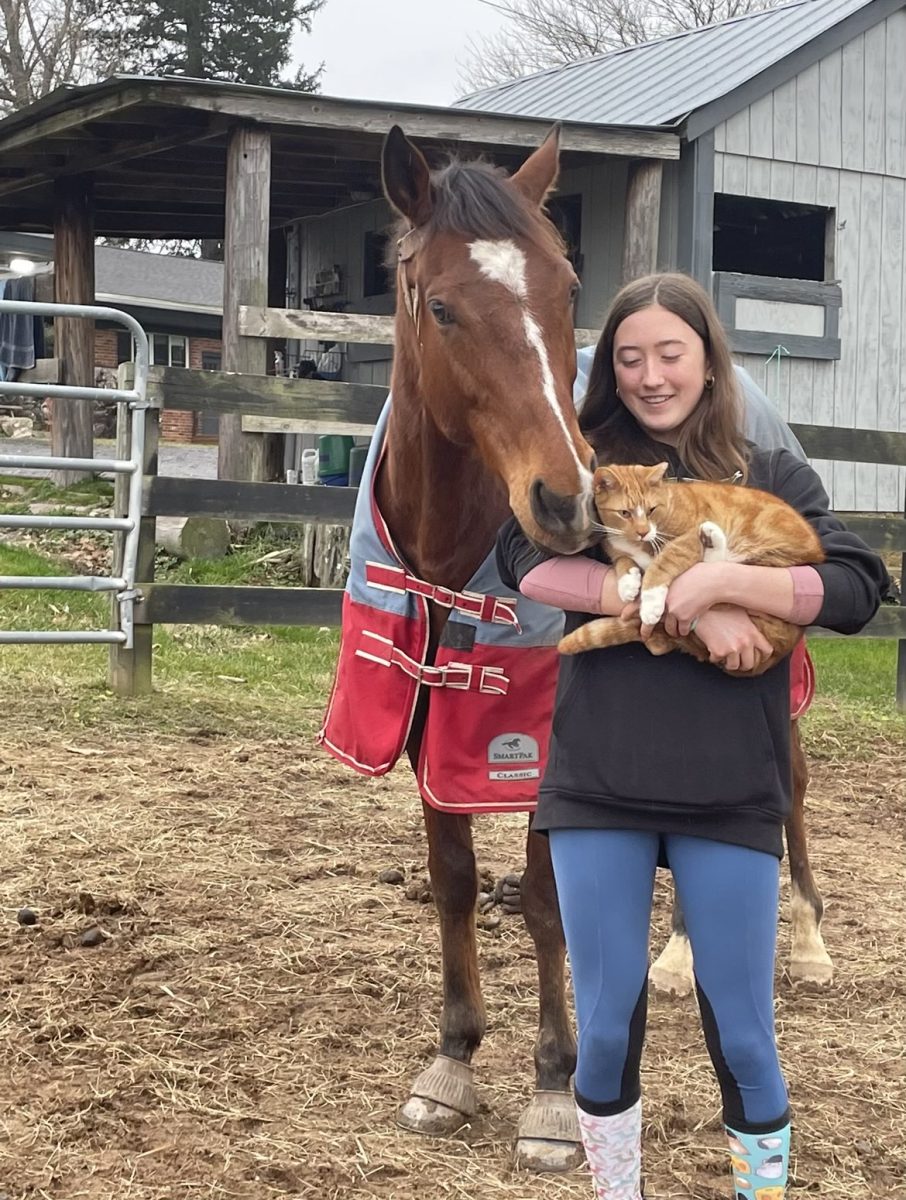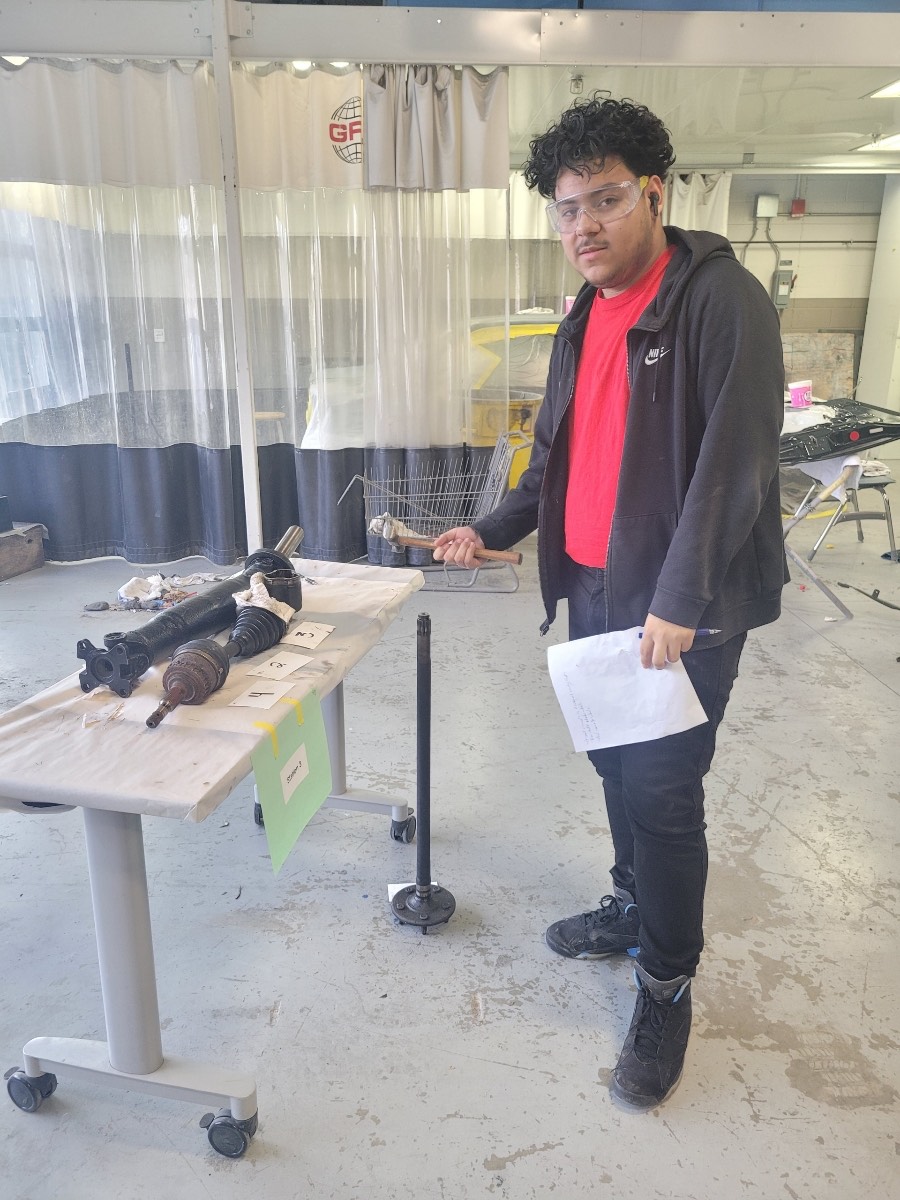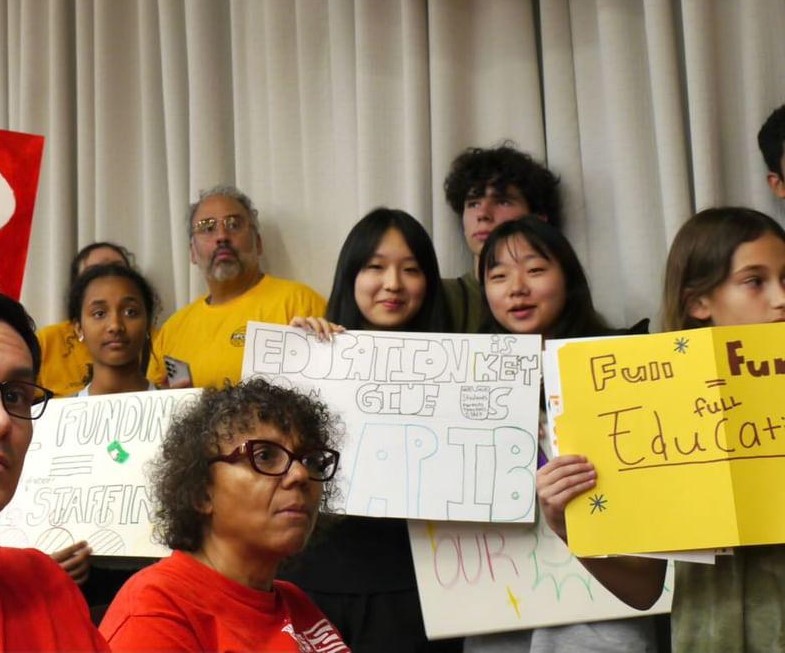There are few things more frustrating than being placed in a class you didn’t choose or being unable to switch out of a class you no longer want to take. What’s more frustrating is not understanding why this is the case. To ease anxieties and answer some nagging questions, I enlisted the help of assistant principal Regina Rodriguez to provide greater transparency of the class scheduling process, something which Rodriguez is heavily involved in.
The hectic class scheduling process starts in January when students are required to sign up for their prospective classes. Rodriguez emphasizes the importance of students signing up for classes they intend to take, not classes they plan to switch out of.
Once counselors and administration ensure that all students have registered for next year’s classes, which Rodriguez compares to “pulling teeth,” Rodriguez is allowed to create what she calls her “utopian staffing.” This is essentially where she creates classes in a perfect world where class sizes and teacher resources are optimal.
But, Rodriguez’s “utopian staffing” doesn’t last for long since in February, MCPS gives WJ and other schools in the county a limit on the number of teachers they are allowed to keep for next year based on the county’s budget. In 2021, when teachers and students were just returning back to schools during the COVID-19 pandemic, the county was more generous in giving schools greater funding to hire more teachers since many students had fallen behind during the virtual learning period. However, in the years since, the county has been stricter in limiting the number of teachers allocated for each school, forcing Rodriguez to rethink her perfect staffing.
“So now what do we have to do? I have to say, ‘okay, what [classes] can we let go? What’s too small? What classes can we raise the [student] cap on to get more kids in?’” Rodriguez said.
This results in Rodriguez and other administrators having to make a number of tough decisions.
First, classes that are graduation requirements like English and Math are prioritized meaning teachers are allocated for major classes in these subjects first. With WJ’s massive student population, it is imperative that the number of students in each class is maximized. The county recommends English classes are capped at 29 students while Math, Science and Social Studies classes are capped at 32 students.
Then, administration has to decide what elective classes to allocate the remaining teachers for. Some classes, which are not direct graduation requirements but are often used to fulfill graduation requirements, get preference.
For example, level one and two language classes are often protected because one common pathway to fulfill the elective graduation requirement includes students taking at least two levels of the same language. Therefore, higher-level language classes are more likely to be eliminated since they are not required for graduation.
“Once you go to higher levels than [one and two], you’re doing it because you want to and we want kids to do that. So then we say, well, will there be some other options for these kids if we cut these classes? Then we try to see if other schools near us have a small class of Italian that maybe [our Italian students] can join. Or we have students take [Montgomery College] classes for free,” Rodriguez said.
At the end of the day, Rodriguez often finds that she has several classes left over which she cannot staff because of the limited supply of teachers. Administration then has to resort to combining similar classes like Italian 3 and AP Italian which shared a class period this past year.
Another subject that typically falls victim to the class scheduling process is Social Studies. With so many Social Studies electives being offered, it is impossible for WJ to run all of these classes, especially when some courses have so few students interested. This leads to many Social Studies electives with the lowest numbers being cut and students are filed into comparable electives.
This is why students need to sign up for classes they are truly interested in; if there is not enough interest in a class in January, when class registration begins, the class may be cut by February and there will be no opportunity to switch to that class later on.
“What you sign up for matters. It really does and I don’t think some students realize it. I think they just say okay, I’ll just put something down, then I’ll change it, but by then it’s too late. You can’t get back into whatever you wanted before and the teachers who would be teaching that class are teaching a different class next year,” Rodriguez said.
Then in March, once there is a rough draft of class schedules, WJ must say goodbye to their surplus of teachers so that they don’t exceed budgetary limits set by the county. The primary solution for this is involuntary transfers, when teachers are required to leave their current school to work at another MCPS school. In some cases, schools will be able to share teachers so they may work in one MCPS school in the morning and a different one in the afternoon. Rodriguez is saddened to see great teachers leave WJ but it is an unpreventable part of the process.
“Students don’t understand how important it is to sign up for what you really think you wanna take because it does mean, sometimes, whether or not somebody’s job is continued upon,” Rodriguez said.
Throughout the summer, Rodriguez and other administrators are constantly making changes to scheduling and communicating with resource teachers depending on fluctuating circumstances. The process has only become more difficult as WJ’s student population has increased.
“We do this all summer long. The bulk of my summer is spent on this and it’s just amazing how the number of sections have increased over the years,” Rodriguez said. “We have years where the [county] gives us the same staffing that they gave us a year before. But, our enrollment projection, it’s gone up by 300, but we aren’t getting any new staffing. What do you do?”
Several elements of the process can make things murkier. Sometimes the county forces schools to run a certain elective class, no matter the numbers. Other times, WJ has to take measures to fight staffing cuts by proving why they need additional teachers.
Last year, WJ got a call from the county about receiving extra staffing the Friday before school started, giving the school just days to recruit another teacher before the school year got underway.
“It’s like when you’re playing cards sometimes, are you going to get the joker? Are you not? Is the [county] going to give us something? And it’s just one year to the next,” Rodriguez said. “It’s an interesting time of year, certain pieces of it. I have fun with it. Others are very stressful. We’ve had teachers who taught a certain thing, like for the last 10 years, and they love it, that’s like their baby and you go to them and say we can’t run that class. They also almost feel like ‘you’re killing me’ because they’re so invested in it and they’ve been doing it for that long. But then it’s like, what can I do?”
The class scheduling process is complex and sometimes frustrating, but there is one thing that students can control: what classes they sign up for. Student interest, in addition to allocated staffing from the county, is what dictates which classes will run and which will not. So, next January, when it’s time to choose next year’s classes, don’t let others dictate what you should or shouldn’t take. Listen to yourself and your own interests so (hopefully) you won’t end up at the counselor’s office at the beginning of the following school year, gritting your teeth because you can’t take a certain class.







































![Senior Tiffany Gibson has dinner with her parents and her nine year old sister. Gibsons family has been her largest source of support throughout her treatment process.
[My dad] helped me through it. He was the one who’d take me to my doctor’s visits, he was trying to make me try to take my medication on time, even though he’d get angry when I didn’t take it. I had to do blood work, so he would always find out. He would always try to get me to take it and remind me, Gibson said.](https://www.wjpitch.com/wp-content/uploads/2023/03/92iA4Tg7fGWMhmk9DKWf7Q6UQQ4p0LYeBobwwvV7-900x672.jpg)






![Thai Class Club members fold origami flowers to celebrate Loy Krathong Day. The club started this year and held their sixth meeting. Im happy that our members find our meetings informative and engaging. It gives us [the] motivation to continue doing something that we enjoy, secretary senior Fannie Sukhumparnich said.](https://www.wjpitch.com/wp-content/uploads/2023/12/y8Qv5Tpv6HY6qatiInq2GeE0Bks7s9X37P3oQFY9-1200x900.jpg)
